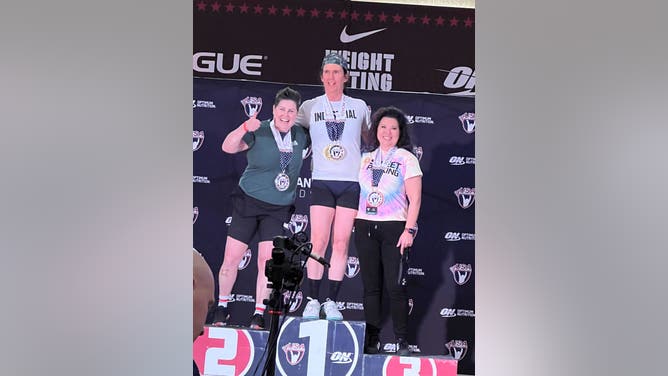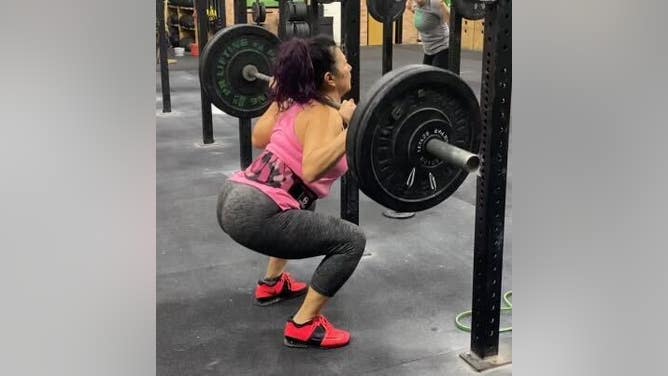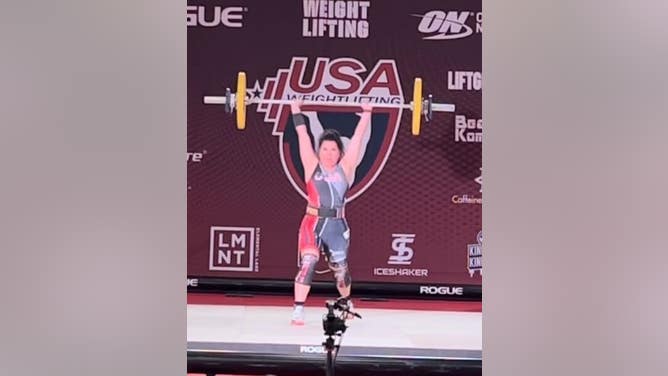USA Weightlifting Disregards Fairness In Favor Of Transgender Inclusion | Tonya Erickson
Last month, Vicki Piper placed first overall at the USA Weightlifting (USAW) Masters National Championship in the Women’s division held in Reno, Nevada. Piper topped the second-place overall finisher by a combined 37.5lbs in the corresponding weight division and age group. That’s a massive gap. I placed third overall in this same competition. Piper sounds like a beast, right? Well, these impressive lifts WOULD make Piper a beast … if only Piper was a female. "She" is not.
I am 54 years old, a mom of four (two daughters and two sons) and have always had a passion for being active. Along with competing at the Master’s level in Olympic Weightlifting, I also play in a women's tackle football league, participate in CrossFit and Powerlifting. I know what it takes to work full time, raise a busy active family, and make my health a priority. Competing at the highest levels takes hard work, dedication, prioritizing sleep and diet, fighting through injuries, sacrifice, setting goals, and achieving those goals.

Vicki Piper won the event. Tonya Erickson is on the right. (Photo courtesy of Tonya Erickson)
I have been training for the last 7 years in CrossFit and Olympic Weightlifting and set a goal of competing at Nationals in 2024. I view competing in local/regional USAW sanctioned events as me competing against myself. Can I get to the numbers I need to qualify for nationals? Some people look at local events to compete for top Youth, Junior, Woman, Masters Women, etc. Since Masters means 35+ age group there is a calculation used to determine who the overall winner is: Sinclair-Meltzer-Faber or SMF for men and Sinclair-Huebner-Meltzer-Faber or SHMF for women.
Nationals on the other hand, is an opportunity for athletes to compete amongst their peers. The categories are broken down by sex, age, and body weight. All factors being equal, Nationals determine who the best is in each of these groups.
Tonya Erickson Chronicles Her Experience At USA Weightlifting Nationals
Going into Nationals, I knew I would be going up a weight category. Meaning, I would not be competing in the same session with my usual weight group, which is an obvious disadvantage. After finishing up my lifts earlier that morning, I went to watch my competitors who had the luxury of competing after my results were posted.

Erickson lifting. (Photo courtesy of Tonya Erickson)
I sat in the stands with the list of my competitors written down on a piece of paper waiting for each woman to make her lifts. Every woman in my category went before Vicki Piper made his first lift. This lift was 24 to 35 pounds heavier than each of the other competitors' opening weights. I was sure my eyes were deceiving me because I couldn’t believe there was very clearly a male lifting in my same division.
I asked around to verify what I pretty much knew because my eyes work. My hunch was confirmed. Piper was trans, a man by biology and strength. The numbers he was posting alone would have been a good indicator that this lifter had an advantage the rest of us didn't have.
I later found out from a post on his Instagram that this was his first ever championship meet (followed by the hashtag #transwomenarewomen). He didn’t just win the gold medals, but he truly dominated over the women in the same category.
USAW had disregarded the importance and necessity for sex-based categories entirely. Its view is that it already has categories in place for the purpose of fair competition as it pertained to other factors, like weight and age.
After returning home and digesting what I had just unfairly experienced, I felt compelled to take action. I decided I would send a formal complaint to USA Weightlifting. In my complaint, I shared I have no animosity towards Piper as he was only following USAW rules. And that is what I took issue with. I pointed out that I rightfully would have earned a silver medal overall and the second place finisher would have earned gold.
USAW Didn't Directly Address Concerns From Competitors
I even gave USAW suggested actions it could take to make this right:
• Create a transgender division to make this equal for everyone – where we can all support and cheer on the time, training, sacrifice and effort they made.
• Give the proper medals for the 3 women competitors in the W55 76kg division.
As of this publication, USAW never responded nor acknowledged receipt of my complaint. Instead it issued an official statement on behalf of the organization after the story gained national attention:
"USA Weightlifting believes strongly in building and supporting a diverse and inclusive weightlifting community [Our transgender policy] is reviewed by an eligibility committee composed of a member of our sports medicine commission, an elite athlete, and an independent committee member…We welcome constructive dialogue and feedback on how USAW can best lead the sport of weightlifting, with an ultimate goal of welcoming all who want to be involved with our sport. However, we will not engage with or tolerate hate speech. Hate has no place in this sport of organization."

(Photo courtesy of Tonya Erickson)
What did they mean by "hate speech" and "hate"? As female competitors, could we not even ask questions? What would the repercussions be if we dared to publicly declare the evidence of unfairness before our eyes? I guess I’m about to find out.
Under the guise of progress, these policies implemented by USAW and many other governing bodies have taken a huge step back for women. Equity will never be achieved so long as we have leaders who believe that men can declare they are women, and be eligible to compete athletically against actual women. At the end of the day, this is bigger than just me or that national championship weightlifting competition.
As I mentioned earlier, I have two daughters. They also play sports. In fact, my oldest competes at USAW events as well. They are a large part of the ‘why’ I am speaking out. They deserve to be worthy of safety and equal opportunity. They deserve to be told they are worthy of being called champions. It’s their future that is ultimately at stake and it's up to us to defend it. If we won’t, who will?